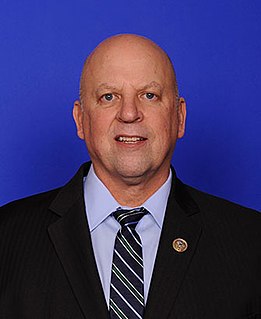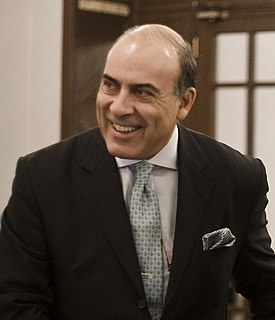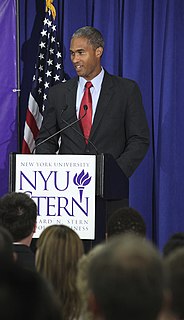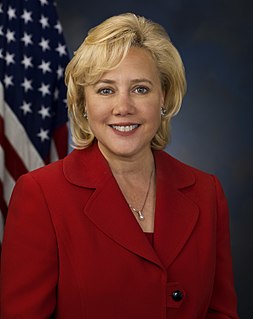A Quote by Mo Ibrahim
Everywhere in Africa, you see Indian, Chinese, Brazilian businesses. Other than Coca Cola and the oil companies, it is very rare to see American businesses.
Related Quotes
Coca-Cola is little more than sugar, some flavoring, and lots of (carbonated) water. It is largely indistinguishable from innumerable other brands of cola, yet people around the world seem to think that Coca-Cola is something and they are eager to ask for it by name and even to pay a premium for it.
Business cycles naturally entail peaks and troughs in employment, and socially responsible businesses should follow successful examples like Coca-Cola, Alcoa, Saudi Aramco, Africa Rainbow Minerals, and Google in working toward mitigating joblessness and enhancing people's abilities to earn a livelihood.
Coca-Cola remains emblematic of the best and worst of America and Western civilization. The history of Coca-Cola is the often funny story of a group of men obsessed with putting a trivial soft drink "within an arm's reach of desire." But at the same time, it is a microcosm of American history. Coca-Cola grew up with the country, shaping and shaped by the times. The drink not only helped to alter consumption patterns, but attitudes toward leisure, work, advertising, sex, family life, and patriotism.
Taoist chanting, Confucian chanting, Christian chanting, Buddhist chanting don't matter. Chanting Coca Cola, Coca Cola, Coca Cola … can be just as good if you keep a clear mind. But if you don't keep a clear mind, and are only following your thinking as you mouth the words, even the Buddha cannot help you.
In Europe, we don't only take offence when one company is treating another company in a way that's illegal. We also look at if governments are joining up with companies that makes it more difficult for other companies. We also see that sometimes government actions can make it very difficult for businesses to compete on their merits.
Ten percent of American businesses disappear every year. ... It's far higher than the failure rate of, say, Americans. Ten percent of Americans don't disappear every year. Which leads us to conclude American businesses fail faster than Americans, and therefore American businesses are evolving faster than Americans.
United States has always been very close to Africa and it's very sad now to see that Africa has a lot more friends - a lot more engagements with the Chinese, with the Indians, with the Brazilians as the United States retreats. Actually, Africa is a wonderful place to do business and American business is missing a big opportunity by really overlooking Africa.
I'm fighting for small businesses. I'm not fighting for big oil. Don't be confused. And there are thousands of businesses in this state that are at great risk. Meanwhile, the country keeps guzzling the oil, but we're out of work down here. We need to get back to work to build this region, and we intend to do so.
































